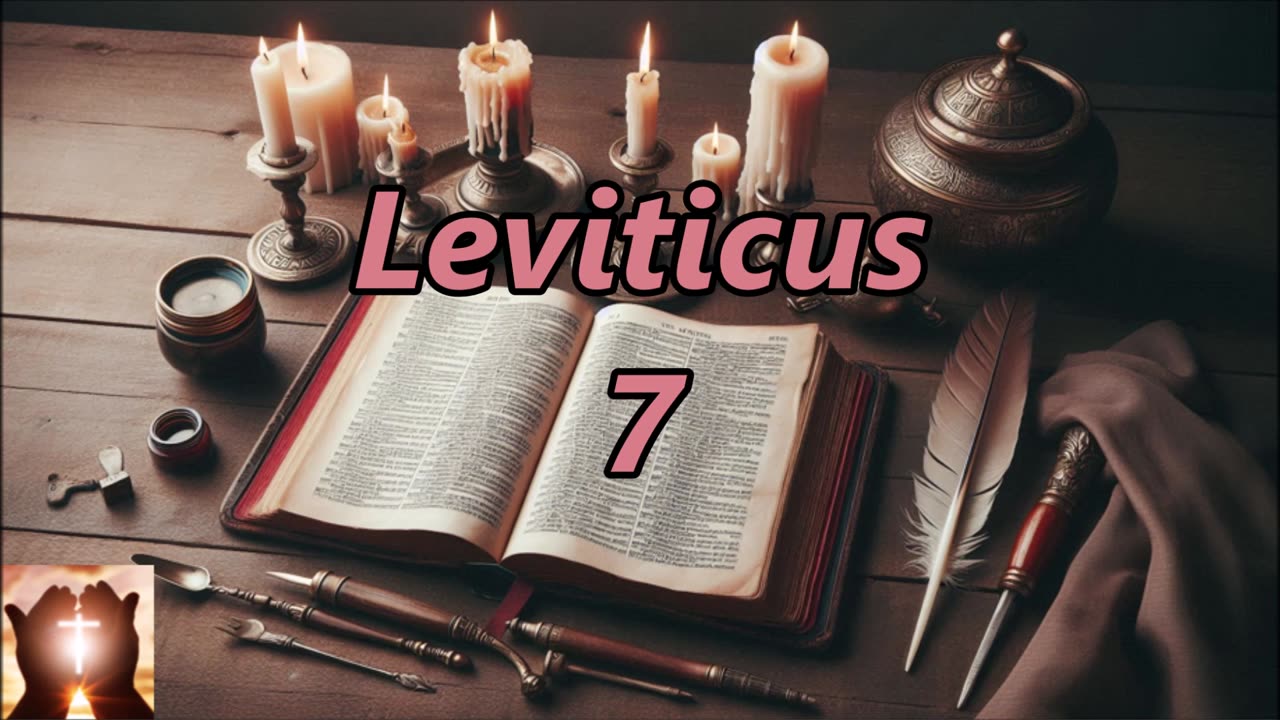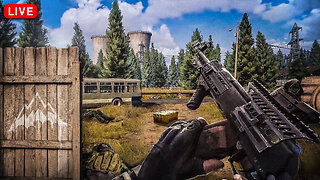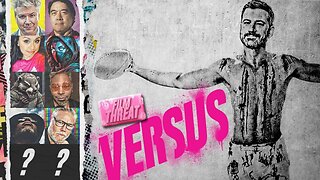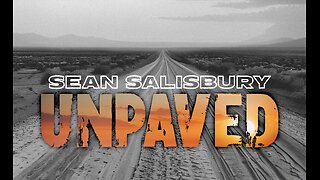Premium Only Content

Leviticus 7
1. Guilt Offering Regulations (vv. 1–10):
Most holy—slaughtered in a holy place.
Fat portions burned; meat eaten by male priests.
The skin of the burnt offering goes to the priest who offered it.
Grain offerings not baked with yeast are for the priest who presents them.
➡️ God provides for His priests through the offerings.
2. Peace (Fellowship) Offering Regulations (vv. 11–21):
Three types:
Thanksgiving offering (with unleavened and leavened bread)
Vow offering
Freewill offering
Thanksgiving offerings must be eaten the same day; vow/freewill offerings within two days—leftovers must be burned on the third day.
Unclean persons may not eat the sacrifice—doing so defiles it.
➡️ Teaches gratitude, purity, and obedience in worship.
3. Prohibitions on Eating Blood and Fat (vv. 22–27):
Fat and blood are strictly forbidden for eating.
Doing so brings excommunication—serious offense.
➡️ Signifies respect for life and the sacred—blood represents life, which belongs to God.
4. Priests’ Portion and Inheritance (vv. 28–38):
Specific parts (breast and right thigh) of the Peace Offering go to Aaron and his sons.
This law applies permanently, a divine provision for priests.
Summary of all offerings: Burnt, Grain, Sin, Guilt, Ordination, and Peace Offerings.
Spiritual Lessons
Worship must be orderly, reverent, and pure.
Thankfulness to God should be shown through both words and action.
God provides for His servants through the obedience of His people.
Sin contaminates, and holy things must be approached with holiness.
Christ Connection
Jesus is our ultimate Peace Offering—restoring our relationship with God and allowing us to share in His holiness (Ephesians 2:13–17). His blood, unlike the Levitical sacrifices, cleanses us forever (Hebrews 9:14).
-
 LIVE
LIVE
StoneMountain64
3 hours agoHitting Max lvl in Arena Breakout Infinite
122 watching -
 LIVE
LIVE
Right Side Broadcasting Network
4 hours agoLIVE: Pres. Trump Makes Announcement on Significant Medical Findings for American Children - 9/22/25
11,257 watching -
 26:00
26:00
Stephen Gardner
1 hour ago🔥ALEX JONES BOMBSHELL: The BIGGEST MYSTERY in Charlie Kirk death EXPLAINED!
16.9K39 -
 LIVE
LIVE
The HotSeat
1 hour agoWhat's Next? Understanding What You Are Up Against.
854 watching -
 LIVE
LIVE
Film Threat
18 hours agoVERSUS: DISNEY DUMPS KIMMEL + HIM SPORTS HORROR | Film Threat Versus
86 watching -
 LIVE
LIVE
The Tom Renz Show
1 hour agoTrump, RFK & The Major Announcement - Autism?
254 watching -
 8:36
8:36
Dr. Nick Zyrowski
6 hours agoHow to Tighten Loose Skin Naturally (No Surgery Needed)
9.01K2 -
 1:17:34
1:17:34
Sean Unpaved
4 hours agoNFL Sunday Showdown: Browns' Brutal Blitz Best? Dart's Daring Debut Dawns, Bears Breakthrough!
29.9K -
 6:33
6:33
Tundra Tactical
4 hours ago $0.45 earnedStupid Gun Myths & Questions Ep. 1 🛑NEW SERIES!!🛑
5.32K1 -
 1:00:25
1:00:25
Jeff Ahern
2 hours agoMonday Madness with Jeff Ahern
3.16K1